Tillerson continues mass dismissal of US diplomats
US Secretary of State Rex Tillerson has initiated a major downsizing of the country’s foreign service staff, even pushing out many senior officials and career diplomats, including the department’s Chief of Security Bill Miller.
Miller was pushed into retirement after being granted a five-minute meeting with Tillerson, who had earlier turned down his “repeated and sometimes urgent requests from the department’s security staff to brief him” during the secretary’s first nine months in office, The New York Times reported Saturday citing several former top officials in the Bureau of Diplomatic Security.
Miller – who served as the acting assistant secretary for diplomatic security – joined a procession of dismissals and early retirements that has “decimated the State Department’s senior ranks,” prompting off-the-record ire as well as congressional concerns about the persisting trend.
This is while US Republican lawmakers denounced former Secretary of State Hillary Clinton for what they viewed as her inadequate attention to security in the months before the deadly 2012 attacks on the American consulate in Benghazi, Libya.
In a letter to Tillerson last week, Democratic members of the House Foreign Relations Committee expressed concern about “what appears to be the intentional hollowing-out of our senior diplomatic ranks,” citing what they described as “the exodus of more than 100 senior Foreign Service officers from the State Department since January.”
Moreover, Republican Senators John McCain of Arizona and Jeanne Shaheen of New Hampshire sent a similar letter to the top US diplomat telling him that “America’s diplomatic power is being weakened internally as complex global crises are growing externally.”
Tillerson, however, has made no secret of his idea that the State Department “is a bloated bureaucracy and that he regards much of the day-to-day diplomacy that lower-level officials conduct as unproductive,” according to the report.
Even before the former chief executive of oil giant Exxon Mobile was confirmed, his staff fired six of the department’s top career diplomats, including former under-secretary of state for management, Patrick Kennedy. Kristie Kenney, the department’s counselor and one of just five career ambassadors, was also summarily fired a few weeks later.
None were given any reason for their dismissals, although Kennedy and Kenney had been reprimanded by Trump transition authorities for answering basic logistical questions by Nikki Haley, the US ambassador to the United Nations.
Tillerson is widely believed to dislike Haley, who is regarded as a potential successor if he quits or is sacked by US President Donald Trump as anticipated in a number of press reports.
The top US diplomat launched a reorganization that he has said will be the most important thing he will do, vowing to slash the state department’s budget by 31 percent and hiring two consulting companies to lead the effort. He has further frozen most hiring and recently offered a $25,000 buyout in hopes of pushing nearly 2,000 career diplomats and civil servants to leave by October 2018.
His small team of aides “have fired some diplomats and gotten others to resign by refusing them the assignments they wanted or taking away their duties altogether.” Among those sacked or sidelined were “most of the top African-American and Latino diplomats, as well as many women.”
This is while the political appointees who typically join the department after a change in administration have not made up for those departures. So far just 10 of the top 44 political positions in the state department have been filled, and for most of the vacancies, Tillerson has not nominated anyone.
One outcome may be that there is no one in place with responsibilities for some key trouble spots, such the Korean Peninsula. Although the North Korean nuclear crisis is Washington’s top priority, the Trump administration has yet to nominate an assistant secretary for East Asia or an ambassador to South Korea.
Furthermore, amid growing fears of emerging conflicts in the Middle East with persisting Saudi war on neighboring Yemen and the kingdom’s provocations against Lebanon and Iran, there is no confirmed US assistant secretary for Near Eastern affairs or ambassadors to Saudi Arabia, Turkey, Jordan, Egypt or Qatar.
The department is also lacking a confirmed assistant secretary for African affairs or an ambassador to South Africa as Zimbabwe faces a future following the departure of long-time President Robert Mugabe.
VIDEO | Press TV's news headlines
July 26: ‘Axis of Resistance’ operations against Israeli occupation
Palestinian resistance fighters hit Israeli Merkava 4 tanks
VIDEO | UK police brutal assault on Muslim family sparks outrage, protests
Hamas: Death of leader in Israeli jail amounts to murder
EU sends €1.5 billion to Ukraine from frozen Russian assets
VIDEO | Millions of Yemenis rally for Gaza, call for more anti-Israel operations
UN chief calls for Olympic truce as games begin in Paris


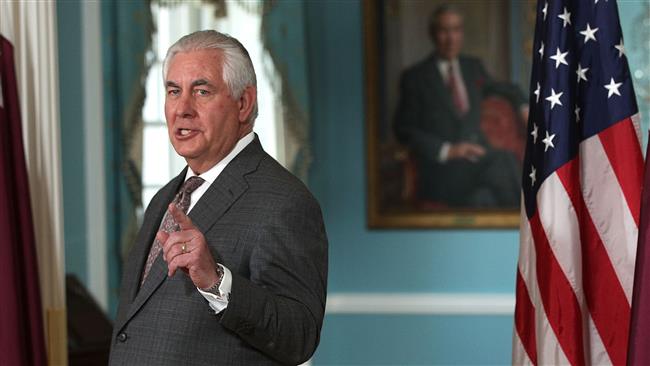
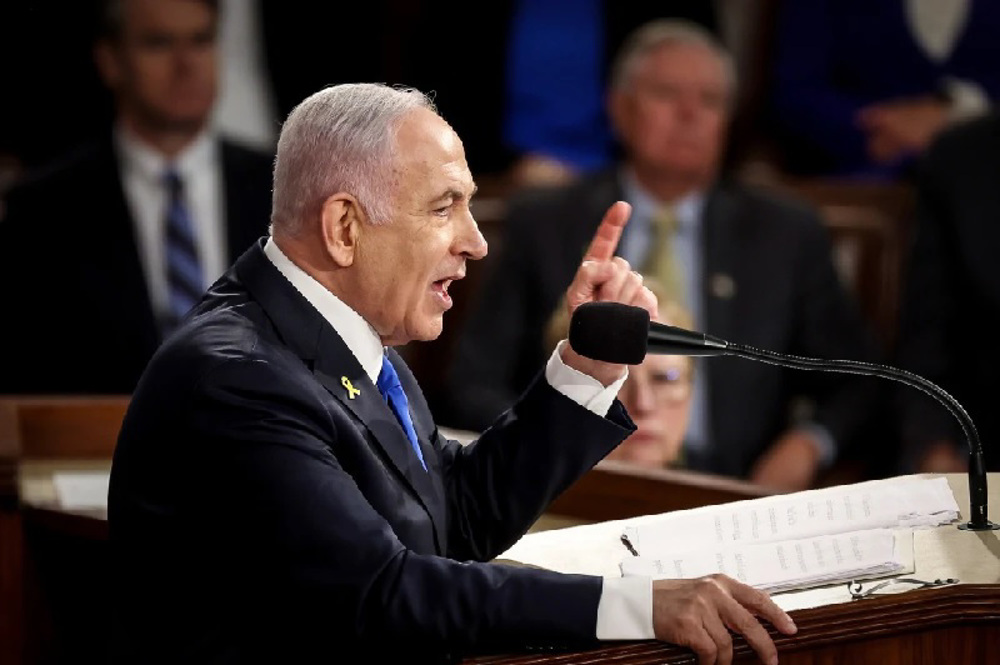
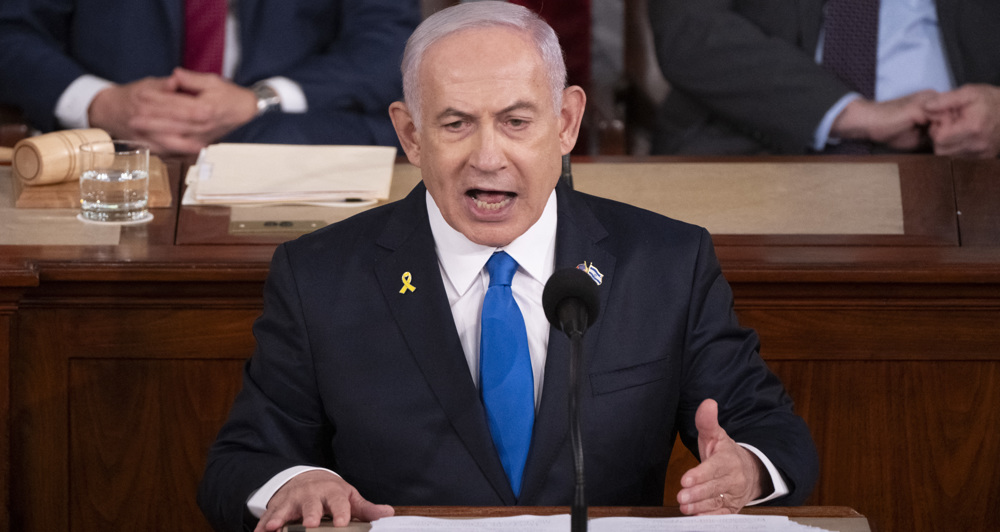
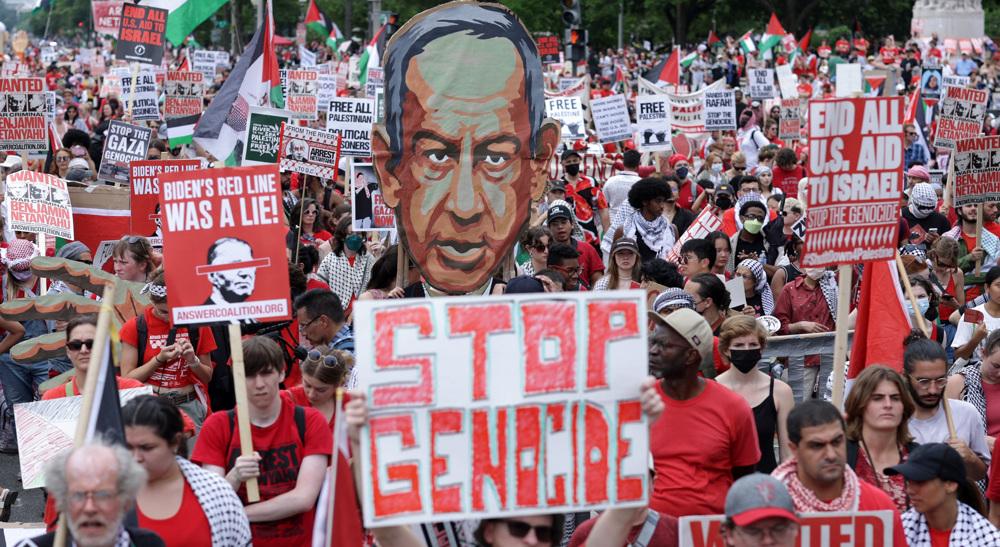



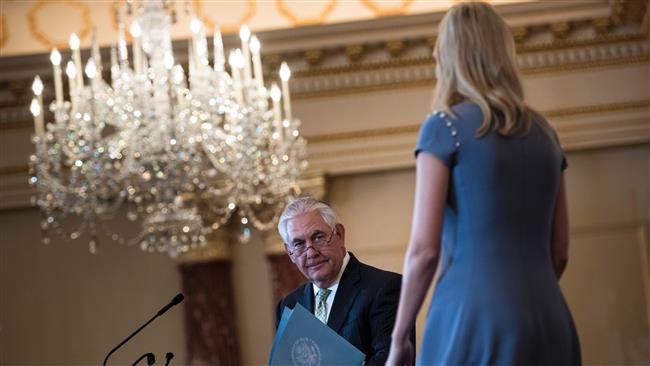
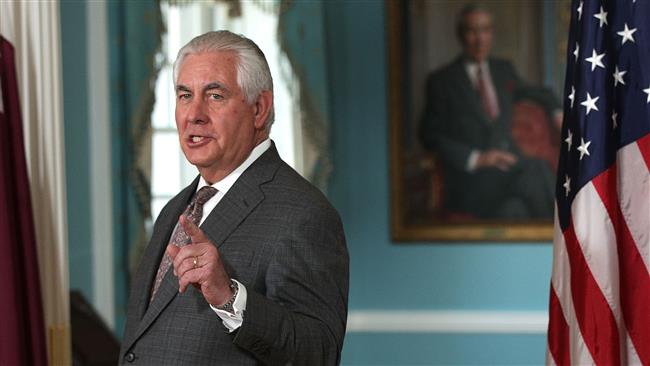
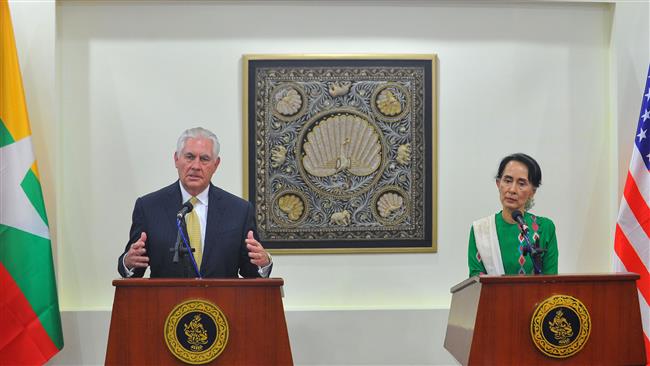

 This makes it easy to access the Press TV website
This makes it easy to access the Press TV website